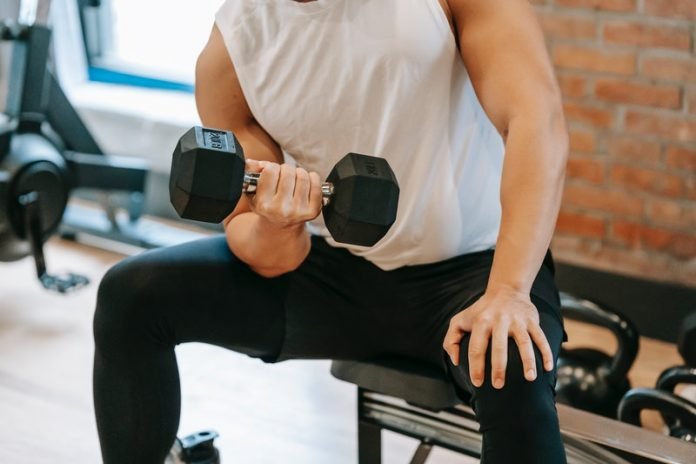
Your buddy at the gym can’t say enough about the bodybuilding products he’s been taking to help build muscle mass and strength. You wonder, are they all safe to use?
According to CDR Mark S. Miller, Pharm. D., a regulatory review officer at the U.S. Food and Drug Administration (FDA), bodybuilding products that contain steroids or steroid-like substances are associated with potentially serious health risks, including liver injury.
“Some of the liver injuries were life-threatening,” CDR Miller says.
CDR Miller was the lead reviewer assessing hundreds of adverse event reports made to the FDA from July 2009 through December 2016. Thirty-five reports showed evidence of serious liver injury.
In addition to liver injury, anabolic steroids have been associated with serious reactions such as severe acne, hair loss, altered mood, irritability, increased aggression, and depression.
They have also been associated with life-threatening reactions such as kidney damage, heart attack, stroke, pulmonary embolism (blood clots in the lungs), and deep vein thrombosis (blood clots that occur in veins deep in the body).
These bodybuilding products are promoted as hormone products and/or as alternatives to anabolic steroids for increasing muscle mass and strength.
Many of these products make claims about the ability of the active ingredients to enhance or diminish androgen, estrogen, or progestin-like effects in the body, but actually contain anabolic steroids or steroid-like substances, synthetic hormones related to the male hormone testosterone.
Bodybuilding Products May Contain Steroids
Cara Welch, Ph.D., a senior advisor in FDA’s Office of Dietary Supplement Programs, explains that many of these bodybuilding products sold online as well as in retail stores, are labeled as “dietary supplements.”
“In fact,” she says, “many of these products are not dietary supplements at all; they are illegally marketed, unapproved new drugs.” F
DA has not reviewed these products for safety, effectiveness, or quality before these companies began marketing.
CDR Jason Humbert, a regulatory operations officer in FDA’s Office of Regulatory Affairs, says that potentially harmful, sometimes hidden ingredients in products promoted for body building continue to be a concern.
“The companies making these products are breaking the law by exploiting an easily accessible marketplace to get these products to consumers,” he says.
“In the end, it’s consumers who are put in harm’s way by taking dangerous ingredients from products promoted as having miraculous results or making empty promises, and who may not understand the risks.”
Some who use bodybuilding products engage in “stacking,” using multiple products (including stimulants or products providing false assurances of liver protection) to enhance results or “gains.”
These combinations may put consumers at greater risk for serious and life-threatening reactions.
What to Do
If you’re taking any body building products that claim to contain steroids or steroid-like substances, FDA recommends that you stop taking them immediately because of the potentially serious health risks associated with using them, CDR Miller says.
The agency also recommends that you:
Talk to your health care professional about any body building products and/or ingredients you have taken or are planning to take, particularly if you are uncertain about those ingredients.
Talk to your health care professional if you are experiencing symptoms possibly associated with these products, particularly nausea, weakness or fatigue, fever, abdominal pain, chest pain, shortness of breath, jaundice (yellowing of the skin or whites of the eyes), or brown or discolored urine.
If you care about muscle health, please read studies about this drug may help prevent muscle aging in older people and findings of a new way to prevent muscle injuries and aging.
For more information about muscle disease prevention, please see recent studies about this vitamin may help you maintain muscles and results showing how your shoes may cause weaker muscles.



